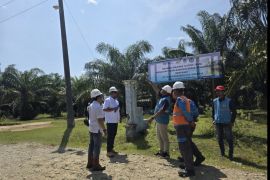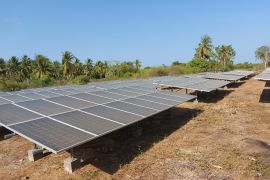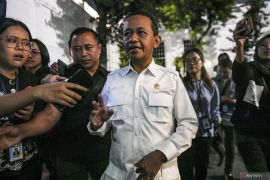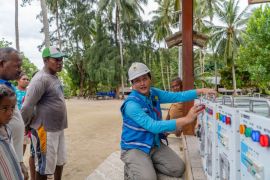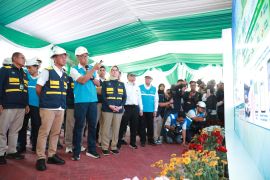The government has set a target to build new power plants with a total generating capacity of 35,000 MW until 2019, but after two years, no major project has been completed.
The development is progressing and PLN is preparing the signing of Power Purchase Agreements with second group of Independent Power Producers (IPP), PLN chief executive Sofyan Baasyir said here on Tuesday after a meeting on the program initiated by Coordinating Minister for Maritime and Natural Resources Luhut Panjaitan .
Under the second phase of PPA there would be an additional power generating capacity of 15,000 MW - 16,000 MW from new power plants to be built by IPP, Sofyan said.
Separately Luhut said he saw progress in the implementation of one of the most ambitious programs of the present government.
However, what is more important of the 35,000 ME power generating program is how much of it could come to reality in 2019, he said.
"As it is impossible to finish the 35,000 MW power project by 2019," he said.
Luhut said he hoped PLN could give data next week about how many new power plants have been built and under construction to be operational by 2019.
"In my opinion, it would be very good if only we could have additional capacity of 20,000 MW-25,000 MW by 2019 with the rest under construction," he said.
Earlier, a lawmaker urged the government to be more serious in its efforts to cope with shortage in power supply in the country especially in the regions.
Mukhtar Tompo of the Commission VII of the House of Representatives (DPR) expressed doubt that the program could be brought to reality as pledged by the government.
"There has been no statement from the government that the program could be carried out," Mukhtar said .
He said President Joko Widodo hardly touched on the big program in his state of the nation address at the House of Representative on the eve of the National Independence Day August 17.
He said the president should push for the implementation of the program more seriously as it is important for the regions to bring modernity to isolated areas.
In addition, the program of "Indonesia bright" aimed at providing electricity for thousands of villages , has not been effectively implemented, he said.
Implementation of the program is still far from expectation in isolated areas in the regions, he said.
He cited in East Nusa Tenggara (NTT) there are still many villages without electricity.(*)
Editor: Heru Purwanto
Copyright © ANTARA 2016
